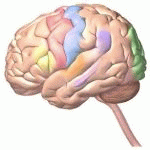Neurology
|
18 september 2014 05:53:24 |
| Neuronal uptake of anti-Hu antibody, but not anti-Ri antibody, leads to cell death in brain slice cultures (Journal of Neuroinflammation) |
|
Tweet Background:
Anti-Hu and anti-Ri antibodies are paraneoplastic immunoglobulin (Ig)G autoantibodies which recognize cytoplasmic and nuclear antigens present in all neurons. Although both antibodies produce similar immunohistological labeling, they recognize different neuronal proteins. Both antibodies are associated with syndromes of central nervous system dysfunction. However, the neurological deficits associated with anti-Hu antibody are associated with neuronal death and are usually irreversible, whereas neurological deficits in patients with anti-Ri antibody may diminish following tumor removal or immunosuppression.
Methods:
To study the effect of anti-Hu and anti-Ri antibodies on neurons, we incubated rat hippocampal and cerebellar slice cultures with anti-Hu or anti-Ri sera from multiple patients. Cultures were evaluated in real time for neuronal antibody uptake and during prolonged incubation for neuronal death. To test the specificity of anti-Hu antibody cytotoxic effect, anti-Hu serum IgG was incubated with rat brain slice cultures prior to and after adsorption with its target Hu antigen, HuD.
Results:
We demonstrated that: 1) both anti-Hu and anti-Ri antibodies were rapidly taken up by neurons throughout both cerebellum and hippocampus; 2) antibody uptake occurred in living neurons and was not an artifact of antibody diffusion into dead cells; 3) intracellular binding of anti-Hu antibody produced neuronal cell death, whereas uptake of anti-Ri antibody did not affect cell viability during the period of study; and 4) adsorption of anti-Hu antisera against HuD greatly reduced intraneuronal IgG accumulation and abolished cytotoxicity, confirming specificity of antibody-mediated neuronal death.
Conclusions:
Both anti-Hu and anti-Ri antibodies were readily taken up by viable neurons in slice cultures, but the two antibodies differed markedly in terms of their effects on neuronal viability. The ability of anti-Hu antibodies to cause neuronal death could account for the irreversible nature of paraneoplastic neurological deficits in patients with this antibody response. Our results raise questions as to whether anti-Ri antibody might initially induce reversible neuronal dysfunction, rather than causing cell death. The ability of IgG antibodies to access and react with intracellular neuronal proteins could have implications for other autoimmune diseases involving the central nervous system. |
| 90 viewsCategory: Neurology |
 5-mehtyltetrahydrofolate rescues alcohol-induced neural crest cell migration abnormalities (Molecular Brain) 5-mehtyltetrahydrofolate rescues alcohol-induced neural crest cell migration abnormalities (Molecular Brain)Neurotrophins regulate ApoER2 proteolysis through activation of the Trk signaling pathway (BMC Neuroscience) 
|
| blog comments powered by Disqus |
MyJournals.org
The latest issues of all your favorite science journals on one page
The latest issues of all your favorite science journals on one page



